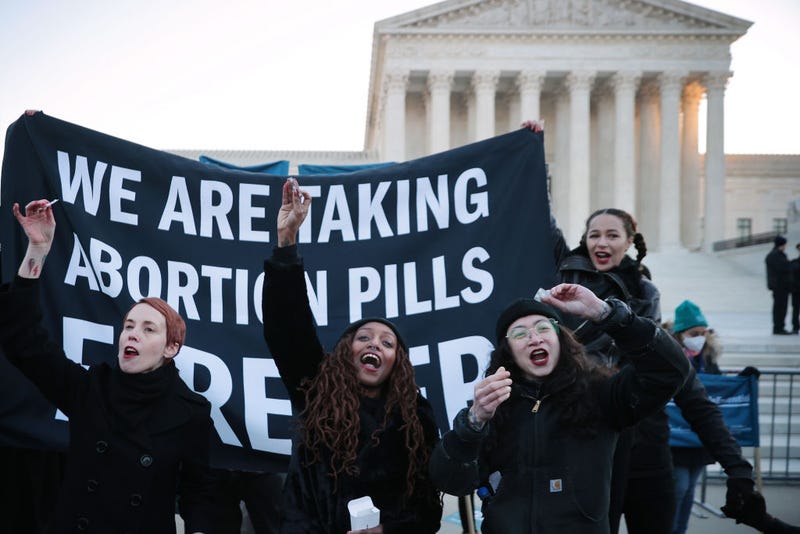
Even as the fate of Roe vs. Wade seems up in the air, the abortion pill mifepristone could soon become easier to access in the U.S.
According to NPR, the Food and Drug Administration was expected Thursday to hit a deadline for a review of the drug that could remove several restrictions on it.

An American Civil Liberties Union lawsuit challenging those restrictions – which include an in-person rule that has been suspended due to the COVID-19 pandemic – led to the FDA kicking off the review in May. A coalition of medical and reproductive rights activists have also called for the FDA to remove restrictions on mifepristone.
The drug is in a class called antiprogestational steroids and it works by blocking the activity of progesterone, a substance that helps sustain pregnancy.
Melanie Israel, a policy analyst with the DeVos Center for Religion & Civil Society at the Heritage Foundation, said she worries that removal of restrictions could be dangerous.
"There is a reason that these safety protocols have been in place, and the abortion industry is really trying to seize this moment to remove those important safety restrictions and make abortion pills more widely available and more common," she said, according to NPR.
However, a new study published last week in the New England Journal of Medicine, found there has been no increase in complications since Canada made mifepristone available by a doctor's prescription in 2017.
Julia Kaye, an ACLU attorney, said years of data demonstrate that mifepristone is safe if used appropriately, according to NPR. The American Medical Association agrees that, since mifepristone was approved by the U.S.
Food and Drug Administration for more than two decades, it has been proved to be a safe option for abortion.
Mifepristone is currently approved by the FDA up to 70 days into pregnancy.
"At this moment, with Roe v. Wade hanging by a thread, it is especially urgent that the federal government do everything in its power to follow the science and expand access to this safe, effective medication," Kaye said.
Restrictive laws in Texas and Mississippi have been pushing the limits of Roe vs. Wade, landmark 1973 legislation that allows abortion up to viability, around 24 weeks into pregnancy. Earlier this month, a new law took effect in Texas that makes sending abortion pills through the mail a felony and next year, the Supreme Court is expected to decide whether a 15-week abortion ban in Mississippi can stand.
As more states pass restrictions, Kaye said allowing easy access to mifepristone could make abortion available for more people.
Nisha Verma, an OBGYN and abortion provider based in Washington, D.C., pointed out that when the drug is also prescribed at a larger dose to treat Cushing’s syndrome it does not have the same restrictions.

